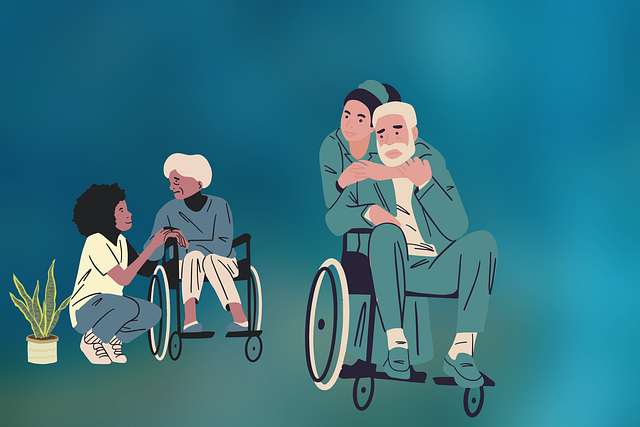Mental health challenges among the elderly in Connecticut nursing homes are common, exacerbated by isolation and life changes. Recognizing signs like depression, anxiety, or paranoia is key, especially for potential victims of elderly sexual assault. Nursing homes provide tailored programs, counseling, and group therapy to address these issues, including legal support from elderly sexual assault attorneys CT. Early identification, comprehensive screening, and a supportive environment are essential for improving mental well-being and ensuring residents receive adequate care, particularly in cases of sexual abuse.
Connecticut nursing homes play a crucial role in supporting the mental health of elderly residents, many of whom face unique challenges. This article explores the growing need for comprehensive mental healthcare within senior living facilities. By understanding the prevalence of mental health issues among the elderly, recognizing subtle signs, and implementing effective strategies, nursing homes can foster healing environments. We delve into legal considerations, highlighting the importance of resources for elderly sexual assault victims in CT, ensuring their well-being is prioritized alongside mental health care.
Understanding the Prevalence of Mental Health Issues in Elderly Populations

Mental health issues among the elderly are a prevalent concern, often overlooked yet deeply impactful. As Connecticut nursing homes cater to an aging demographic, it’s crucial for them to recognize and address the unique mental health needs of their residents. According to various studies, depression, anxiety, and cognitive decline are more common in older adults than generally assumed. These conditions can be exacerbated by social isolation, chronic illnesses, and life-changing events such as moving to a care facility.
Given the sensitive nature of these matters, having specialized services, including support for survivors of elderly sexual assault (a critical yet often hidden issue), is essential. Connecticut nursing homes can play a vital role in promoting mental well-being by implementing tailored programs, fostering social connections, and providing easy access to professional counseling. By understanding and proactively addressing these challenges, care facilities can significantly improve the quality of life for their elderly residents.
Recognizing the Signs: Identifying Mental Health Concerns in Seniors

Recognizing mental health issues in elderly individuals is a critical aspect of their overall well-being, especially within the context of nursing homes. Many seniors may exhibit subtle signs of distress or cognitive decline that could indicate underlying mental health concerns. As Connecticut nursing home attorneys often emphasize, it’s crucial for caregivers and staff to be vigilant in identifying these red flags. Common indicators include persistent depression, anxiety, aggression, or social withdrawal.
Physical symptoms like changes in appetite, sleep disturbances, or unexplained pain can also suggest emotional turmoil. Unfortunately, elderly victims of sexual assault may display even more nuanced behaviors, such as increased paranoia, confusion, or a sudden decline in personal hygiene. Prompt intervention and appropriate mental health support are essential to address these issues, ensuring the comfort and safety of every resident.
The Role of Nursing Homes in Providing Mental Healthcare

Nursing homes play a pivotal role in ensuring holistic care for the elderly, including mental health support. In Connecticut, where elderly sexual assault cases are a concerning issue, these institutions become safe havens and recovery centers. With dedicated staff and specialized programs, they can offer much-needed assistance to victims who often experience trauma, depression, anxiety, and other mental health challenges.
The well-being of the elderly is a priority, especially when addressing sensitive matters like sexual assault. Nursing homes with trained professionals equipped to handle such cases can provide confidential counseling, group therapy sessions, and personalized care plans tailored to each resident’s unique needs. This comprehensive approach not only aids in recovery but also fosters a sense of security and community among residents, ensuring they receive the respect and support they deserve, backed by professional expertise and legal advocacy from elderly sexual assault attorneys CT.
Strategies for Effective Mental Health Support in CT Nursing Homes

In Connecticut nursing homes, effective mental health support for elderly residents requires a multifaceted approach. First, regular screening and assessment are crucial to identify individuals at risk or experiencing mental health issues. This involves trained staff conducting comprehensive evaluations to detect depression, anxiety, and other common conditions among the elderly. By identifying these needs early, nursing homes can implement targeted interventions promptly.
Additionally, Connecticut nursing homes should foster a supportive environment through social activities, group therapy sessions, and one-on-one counseling. Engaging in meaningful interactions and providing opportunities for residents to express themselves can significantly enhance mental well-being. Further, addressing specific concerns like elderly sexual assault requires dedicated resources, including trained professionals who can offer specialized support and guide victims towards recovery. Such strategies not only promote overall mental health but also ensure that vulnerable elderly individuals receive the care they deserve.
Legal Considerations and Resources for Elderly Sexual Assault Victims

In Connecticut, nursing homes have a legal obligation to provide a safe and secure environment for their residents, including protection from sexual assault. When an elderly resident becomes a victim of sexual abuse, it’s crucial that the nursing home takes immediate action. The first step is to report the incident to local law enforcement and contact specialized elderly sexual assault attorneys in CT for legal guidance. These attorneys can help victims navigate complex legal systems and ensure their rights are protected.
Additionally, Connecticut offers various resources and support services specifically designed to aid elderly sexual assault survivors. These include hotlines, counseling centers, and advocacy groups that work closely with law enforcement and healthcare providers. By utilizing these resources, nursing homes can facilitate better care and recovery for affected residents while also addressing the legal considerations involved in such cases.






